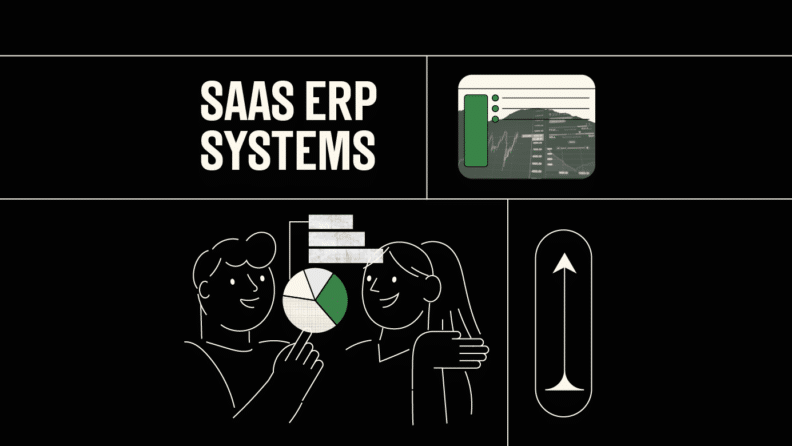A SaaS ERP is a cloud-based ERP system that helps accountants and financial professionals manage finances, automate tasks, and access real-time data from anywhere.
But knowing what it is and how it can impact your business are two different things.
Using my experience in digital software, I’ll show you how SaaS ERP works, what benefits it brings to your role, and how to choose the right solution—so you can make smarter, faster financial decisions with less stress.
What is ERP?
Enterprise resource planning systems are technological solutions that allow businesses to manage many of their business processes from one central place. It gives real-time insight into how your business's central functions are performing, allowing you to strategize and allocate resources effectively.
Common business units covered by ERP platforms include:
What is SaaS?
SaaS, or Software as a Service, is a cloud-based software delivery model where applications are hosted by a provider and accessed by users over the internet. Instead of buying and installing software on individual devices, users subscribe to it—often on a monthly or annual basis—and use it via a web browser.
For example, if you have a Netflix subscription, you're already using SaaS in your daily life.
Is SaaS ERP Different from Cloud ERP?
If it walks like a duck, looks like a duck, and quacks like a duck, it’s a duck. It's just a different type of duck.
There are differences between SaaS ERP and cloud ERP systems, but they mostly boil down to the level of customization you'll get (and the price difference you'll see to get that customization). Cloud ERPs are also accessible across multiple servers, while SaaS ERPs are hosted on the providers server.
5 Benefits of SaaS ERP
Switching to a SaaS ERP can make your financial processes faster, smarter, and easier to manage. Here are five key benefits I've found while researching digital software:
- Lower Upfront Costs: With SaaS ERPs, you don’t need to buy servers or pay for complex installations. This helps keep your IT spending lean and manageable—which can be especially helpful for growing businesses trying to avoid big, up-front expenses.
- Quicker Updates: SaaS ERP providers handle all updates for you automatically. That means you’re always using the latest version with the newest features, security enhancements, and performance improvements—without lifting a finger.
- Greater Accessibility: With a SaaS ERP, you’re not tied to one location. Instead, you can log in from your laptop, tablet, or even your phone. Everything is hosted in the cloud, so your data is always available and up to date, no matter where you are.
- Easier Implementation: Considering you don’t have to purchase new equipment, hire new employees, or install software on local machines, it’s much easier to implement a cloud-based ERP system.
- Increased Flexibility: Whether you're adding users, features, locations, or entirely new departments, a SaaS ERP can grow with you. It’s built to scale, so you can start small and expand as your business evolves—without switching systems or reworking your whole setup.
3 Disadvantages of SaaS ERP
While SaaS ERPs are highly beneficial, they do have some drawbacks, such as:
- Limited Customization: SaaS ERPs usually come with preset features and templates, which can be limiting. You can often tweak settings or add plugins, but you may not be able to fully tailor the system.
- Ongoing Costs: While you avoid large upfront fees, SaaS ERPs come with ongoing monthly or annual costs. Over time, these can add up—especially as your team grows and you need more user licenses or advanced features.
- Less Control Over Updates: SaaS ERP vendors manage updates and roll them out on their own schedule. While it’s great to always have the latest features, sometimes these updates can affect your workflow or change parts of the system you’re used to.
SaaS ERP vs. On-Premise ERP
Both on-premise ERPs and SaaS ERPs look to centralize company data and processes within a single unit. The only key differentiator is whether it's installed on your server, or accessed via the cloud.
On-premise solutions are generally ideal for larger enterprises or businesses in industries that manage sensitive data, such as healthcare or manufacturing. On the other hand, SaaS ERP solutions are targeted more toward SMBs or companies who need access to their financial information at all times.
Embrace SaaS ERP For Your Business
Whether you’re an expert ERP user or you don’t know your ERPs from your ABCs, it’s clear that cloud-based systems offer many advantages over on-premises ones.
So what are you waiting for?
Ready to compound your abilities as a finance leader? Subscribe to our newsletter for expert advice, guides, and insights from finance leaders shaping the tech industry.



